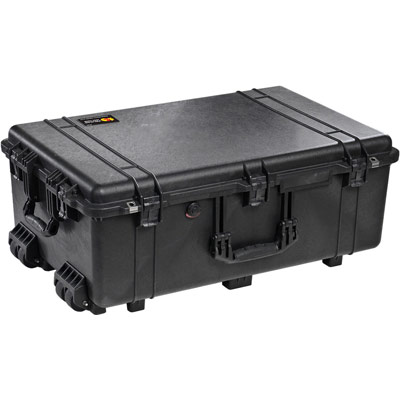How to Live Off the Grid
June 21, 2020

With the pace of city life getting faster, the planet getting warmer and the cost of living getting higher, it’s not hard to see why so many people are charmed by the idea of off-grid living. This way of life involves living off the power grid, with no access to public utilities that supply electricity, gas or water. But there’s a lot more to off-grid living than that. In this guide, we review a few important basics on how to live off the grid. Hopefully, it will help you decide if it’s something you might want to seriously consider.
The Basics: Surviving off the Grid
In its most basic context, off-grid living requires you to procure four essential things for yourself each and every day: shelter, power, water and food. It also requires you to be ready in the event of an emergency.

1. Shelter
A safe, off-grid living situation should involve reliable shelter. Whether it be a cabin in the woods, a tiny home or even an RV, life outside of civilization wouldn’t be possible without a place to live. You need to spend the time creating an off-grid dwelling that fully protects you from predators and the elements, including snow, rain, wind and sun.
2. Power
Powering your site is part of the fun of off-grid living! Often, survival-minded off-gridders build complex solar-powered, wind-powered and gas-powered systems, with many operating via a generator. Power is crucial to reliable heating, cooking and communication. Some essentials of off-grid powering include:
- Solar or wind power - The more self-sufficient your power system, the less you’ll have to rely on supplies from the outside world. Wind and solar are among the most popular options.
- Battery-powered devices, including lighting and radios - The use of a battery-powered tactical flashlight or camping lamp is crucial on off-grid sites, as are reusable (rechargeable) batteries.
- Solar-powered devices, including chargers, flashlights, radios and lighting- These devices have built-in solar panels that draw directly from the sun, requiring no inverter or generator.
- Old-fashioned wood-burning or coal-burning stoves- These stoves offer warmth and heat for cooking, especially if there is a reliable supply of firewood on the land.
- Gas-powered appliances, including fridges, stoves and washing machines- These types of appliances are popular among off-grid builders because they’re durable and reliable, but they require a constant supply of fuel.
3. Water
Do not underestimate the importance of having a steady stream of potable water at your disposal on your homestead for drinking, bathing and cleaning. The best way to get reliable off-grid water is to have a source on-site, such as underground water or rivers, streams or lakes. You’ll most likely need to invest in a central filtration system. The more complex iterations of these systems require a private well, while the most basic off-gridders may use rain catchment systems or buy and store large quantities of water on their off-grid site.
4. Food
For most people who live off-grid, food comes from many sources, but in an ideal world, it would be procured self-sufficiently through gardening, hunting, fishing, foraging and farming. The ability to grow and harvest your own food is crucial for true self-sufficiency, but most homesteaders stock up on large quantities of essential dry goods, including rice, oatmeal, canned vegetables, dehydrated foods and canned fish as a backup. Many also learn useful skills such as canning fruits and veggies and grinding flour from acorns or cattails.
5. Emergency Supplies
Having a well-stocked emergency kit on hand is vital to any successful off-the-grid operation. You must always have access to life-saving resources when you’re far from civilization and medical care. A good emergency supply kit should include:
- A first-aid kit with bandages, medications, antiseptic wipes, etc.
- An NOAA weather radio for weather and emergency information
- Backup water (at least a gallon per person per day)
- Backup food (at least 2,000 calories per person per day)
- Paper maps, a compass and emergency signals
- Backup prescription medications and glasses
- An emergency communication system
- A LED flashlight and headlamp
- An emergency blanket and warm clothing

The Joys of Off-Grid Living
With so many new products and powering solutions on the market, you can get as basic or as luxurious as you like with your off-grid setup. Regardless of which way you go, you will undoubtedly enjoy the many positive aspects of life away from the hustle and bustle of civilization. With some hard work and preparation, you can achieve peace and quiet, a lower environmental footprint and the satisfaction of living self-sufficiently.
RELATED PRODUCTS

SIGN UP FOR EXCLUSIVE OFFERS
Sign up for our newsletter and get exclusive access to new product launches, special offers and much more.
RELATED BLOGS

















